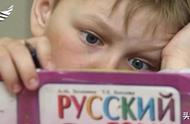
川研教育——英语(二)学习小技巧三十九
中心名词
Li Bai was a famous ancient Chinese poet.
This beautiful, big, old, red, Chinese wooden table was my grandmother’s.
在修饰something, anything, nothing, everything, somebody, someone, anybody, anyone, nobody, no one, everybody, everyone 时,形容词要后置。
I have something important to say.
There is something wrong with my computer.
B. 形容词后置修饰名词
l 形容词 补足语构成的形容词短语
a. 形容词 介词短语
a jacket similar (形容词) to yours (介词短语)
b. 形容词 不定式短语
Parents eager (形容词)to support their children’s efforts (不定式短语)
Students brave enough to attempt the course deserve to succeed.
c. 形容词 动名词短语
a waiter busy (形容词)serving the guests (动名词短语)
l 多个形容词并列构成的形容词短语
He bought a set of furniture, simple and beautiful.
A man approached the official, timid and hesitant.
3). 形容词的比较级和最高级的构成形式
A. 单音节词
l 一般在词尾加–er, -est, 构成比较级和最高级
bright brighter brightest
tall taller tallest
l 以-e结尾的词,直接在其后加-r 和-st
Brave braver bravest
Late later latest
l 以-y结尾的词先变y为i,再加-er, -est, 构成比较级和最高级。
Shy shier shiest
l 以一个元音加一个辅音结尾的词,要先双写词尾的辅音字母,再加-er, -est.
Fat fatter fattest
Big bigger biggest
Sad sadder saddest
B. 双音节词,以-y结尾的双音节形容词,先变y为i,再加-er,-est
C.其他双音节和多音节词,在前面加more, most构成比较级和最高级。
D. 特殊形式的比较级和最高级

further/furthest 有抽象的意义,有“进一步的,更多的,更深入的”,常与抽象名词连用
further discussion further debate further information
This was the furthest concession that he would make.
l Later, latter, latest, last 的用法
I am on the phone right now. Could you call me later?
Should we take a bus or taxi? Kim wants to take the bus, but I prefer the latter.
A: What do you think of the writer’s latest novel?
B: I like it much better than his last one.
He is the last person who I want to see.
4) 形容词比较级和最高级的用法
A. 形容词比较级的用法
than 的比较级句型
l 常见的句型是 : A 比较级 than B, A , B 一般是两个同类的 、彼此独立的人或事物 。 例如:
This question is less difficult than that question. 这个问题没有那个问题难 。
l 也可以不是两个同类事物的比较 , 而是某一事物自身相比。 此时句子的结构为 : A 比较级 情形1 than 情形2 例 如 :
He did much better in the finals this term than last term 他这学期的期末考试比上学期的考的好多了
Since it has been repaired ,the machine works more efficiently than it did before. 机器被修好了, 因此比以前得效率更高了 。
l 若被比较的对象不是彼此独立的人或事物 , 而是具有“ 一事物包含另一事物 "这样的所属关系 ,用other 或 else 将其与整体区别开来, 以免造成逻辑上的矛盾 。 例 如 :
lron is more useful than any other metal. 铁比其他金属更有用。
She works harder than any other student in her class. 她比班上其他任何学生都努力工作。
但若说 : She works harder than any student in her class.
就是错误的,因为she属于her class中的一员,而any in her class 则包括”她 自己 “.
l 可以修饰比较级的词。
形容词的比较级前可以用以下表示成都的词或短语来进行修饰:
a bit , a little bit , a little , a lot , a great deal, any, even, far,
by far (还可以用在最高级的前面), much, very much, no, rather,
still and slightly 请看例句 :
Are you feeling any better?
Things are no better than before.
He makes far fewer mistakes in spellings than before.
B. 形容词最高级的用法
l The 最高级 in 地方
It is the most expensive car in the world
The best woman in the world is my mother.
l The 序数词 最高级 in 地方
The Yangtze River is the longest river in China, but it is the third longest river in the world.
l The 形容词/副词的最高级 of 所属范围
Certain zoologists regard crows the most intelligent of birds.
Gold is the least useful of all metals.
5) –ing形容词和-ed形容词的特点
This book is interesting.
He is interested.
-ing 形容词主要描述事物带给人的感受,句子的主语和被修饰的名词都是事物,很少是人。
-ed 主要描述人的感受,句子的主语和被修饰的名词大都是人或有情绪的动物,一般不指事物。
the exciting news 令人兴奋的消息 the excited man 激动的人
a frightened bird a frightening story
the annoyed man the annoying words
My job is boring/interesting/tiring/satisfying/depressing.
I am bored with my job. 我的工作很无聊
I am always tired when I finish work.
,










